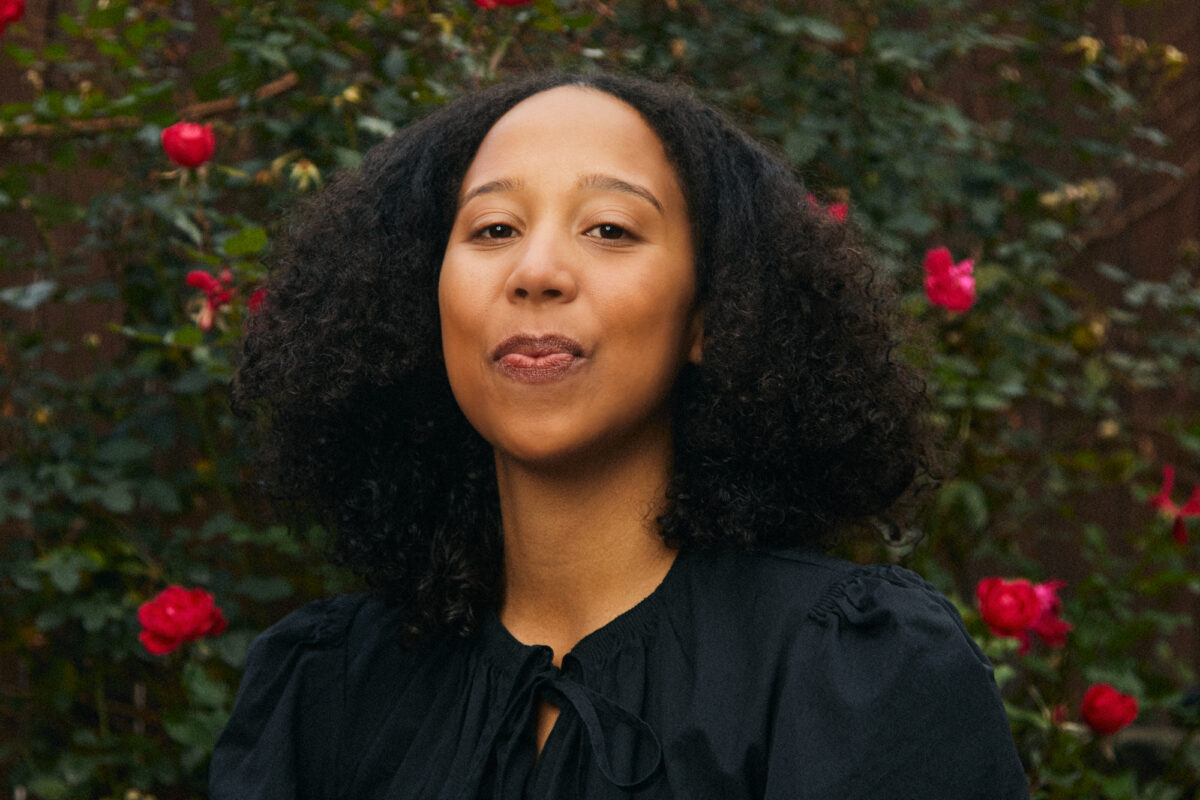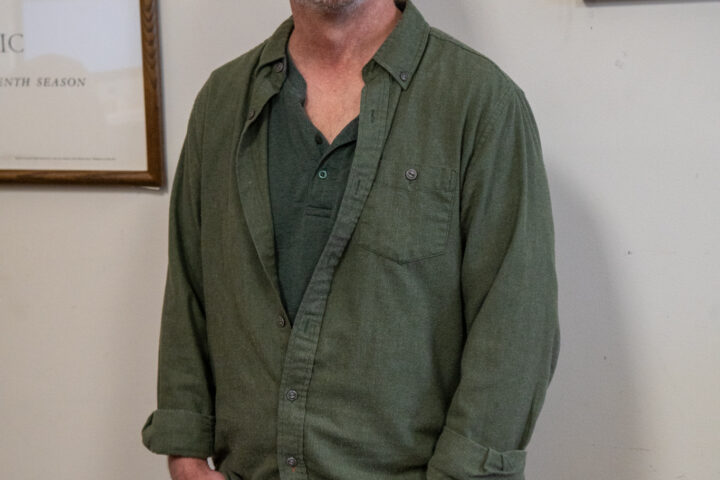On any given Friday night, young people would be more inclined to go out, dance, or listen to music than to visit a museum — but unlike most activities in New York City, the Whitney Museum of American Art is free on Friday nights.
Since March 20, the Whitney Biennial has been drawing large crowds, and Queens College Media Studies Professor Madeleine Hunt-Ehrlich is in the spotlight as a director. Professor Hunt-Ehrlich’s movie “Too Bright to See” released in 2023, honors the life of Martinican writer and intellectual Suzanne Césaire, was screened on April 12th with a live musical performance by Sabine McCalla to an appreciative audience.
If Césaire’s name doesn’t ring a bell, it may be because the name of her husband Aimé Césaire, a famous poet and writer, has overshadowed her accomplishments.
“The background to the movie was about looking at history from a different perspective. No one is interested in the wife of Aimé Césaire,” noted Cherise Simpson, a junior studying Media Studies at Queens College who attended the screening.
One of the first sentences pronounced on screen was “Flaubert was a rentier,” or a landlord, referring to the renowned 19th-century French novelist. This sentence raises a question that is often forgotten: What is the social class of writers?
Suzanne Césaire was a Black woman, a teacher, and a mother, and thus had much less time than male writers. This was especially the case in the 1930s and 1940s where men were much more likely than women to be allowed to write.
This first line about the economic situation of authors echoes the title of Professor Hunt-Ehrlich’s installation, “Speaking in Camouflage,” a phrase from Suzanne Césaire’s writing. Suzanne Césaire worked in the shadow of her husband’s works, editing them, but not always being seen herself.
Suzanne Césaire was part of the Black anticolonialism movement, and this criticism of colonialism is reflected in the film’s imagery. The film is set in lush natural surroundings; it is extremely peaceful, beautiful, with very little noise. These landscapes could not have better described Charles Baudelaire’s phrase “Luxe, Calme et Volupté” (luxury, calm, and voluptuous) in “L’Invitation au Voyage” — his poem first published in 1857.
However, these landscapes are not there by chance.
The extravagant beauty of the surroundings with the palm trees is a mark of colonialism.
“I recently found that palm trees are not [native to the] Caribbean; they were created for a few to have the most romantic experience. The tropics were invented at the same time that racial capitalism was invented. The beauty in that way is constructed, it’s like a projection or phantasm,” said Professor Madeleine Hunt-Ehrlich in a discussion after the screening.
The tropical beauty felt throughout the film was not natural but made for the settlers for them to have a good experience, to romanticize that life.
“The palm trees are here for peace, relaxation, but it reminded me of labor. There is labor behind the calm, and the relaxation, there is labor behind keeping the space clean,” said Simpson.
The movie plays with the art and plays with us; we don’t really see Suzanne Césaire directly herself but more as a representation or a shadow of the past.
Regarding the explosion of biopics recently, this movie deviates from the norm to be a surrealist anti-biopic.
“A biopic will normally cast an actor to play a historical figure and replace the real history with a simplified version. An anti-biopic doesn’t let us reduce the story to one actress, or one version of reality. It allows conflicting versions of history to coexist,” said Media Studies Chair Amy Herzog.
“Too Bright to See” — the title of the film itself — plays with words. One assumes that the sunlight illuminates something, whereas here, the object becomes impossible to see, playing with the idea of revealing who Suzanne Césaire is.
Obscured vision is part of the author’s legacy, Professor Hunt-Erlich explained. “I am making a film about an artist that did not want to be remembered,” she said.
Finally, the movie is about maintaining the memory of Black women, about letting their legacy live on. Because, even if her writings are gone, even if her moment is gone, that Friday night, the lights were good enough to watch “Too Bright to See.”











